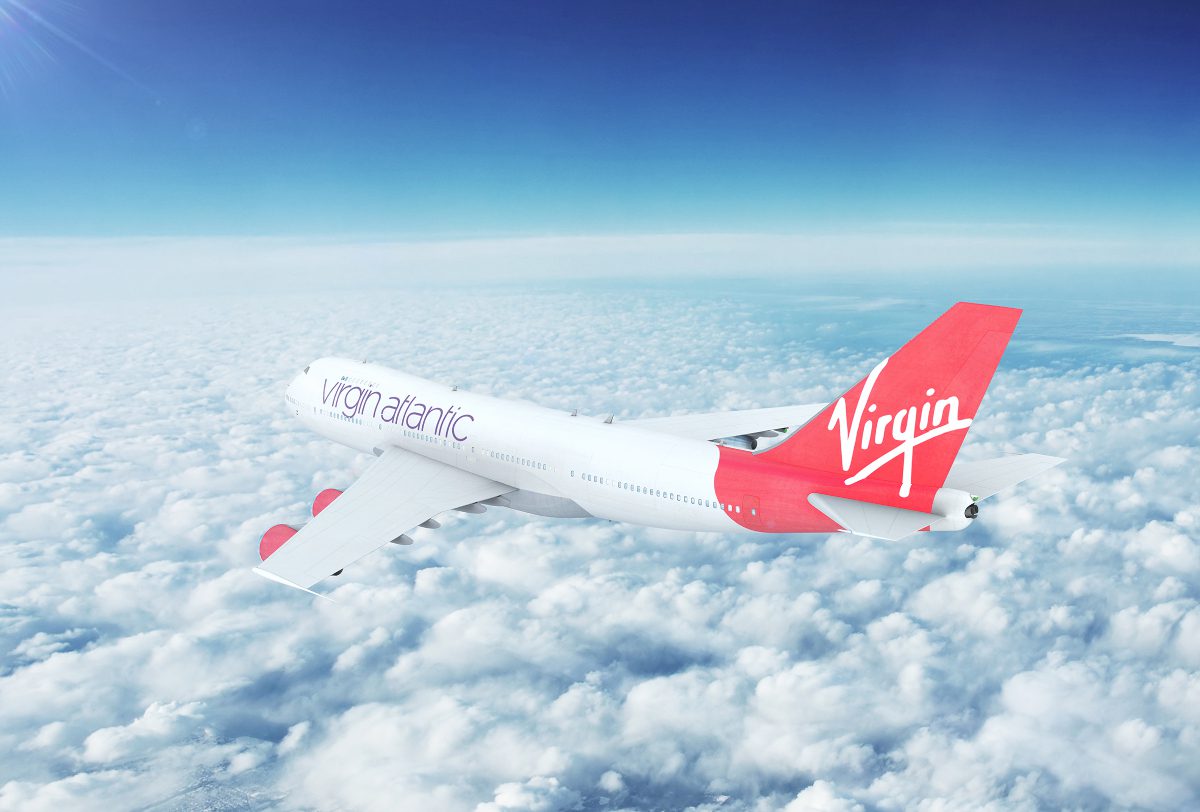
The first transatlantic passenger flight powered by 100% sustainable aviation fuel (SAF) was completed on Tuesday 28 November by Virgin Atlantic, with the journey hailed as a milestone in assessing the viability of the putative green propellant.
Flight100’s journey from Heathrow to New York was undertaken with the approval of aviation authorities from the UK, Ireland, Canada and the US, and was credited by Transport Secretary Mark Harper as showing “how we can both decarbonise transport and enable passengers to keep flying when and where they want.”
SAF seems widely viewed as the most promising avenue for decarbonising long-haul aviation at present, but key problems remain: Notably, a vast shortfall in its availability (with only 0.1% of global demand for aviation fuel currently met by SAF).
Sir Richard Branson, Founder, Virgin Atlantic, who was on-board, said: “The world will always assume something can’t be done, until you do it. The spirit of innovation is getting out there and trying to prove that we can do things better for everyone’s benefit.”
Presently, aircraft are only allowed to run on a 50:50 blend of SAF and conventional jet fuel, and test flights such as this one aim to secure investor confidence and make the case for scaling-up production.
Flight100 involved a Boeing 787 Dreamliner equipped with two Rolls-Royce engines running on SAF based on “a unique dual blend”, combining around 88% HEFA (Hydroprocessed Esters and Fatty Acids), made from waste fats, and 12% SAK (Synthetic Aromatic Kerosene), made from plant sugars. Plant proteins, oil and fibres also constituted a portion of the fuel.
A previous trial flight using 100% SAF on a commercial airliner crossed the Mediterranean in April 2021, with both engines of an Airbus A350 running on HEFA.
For fuels that depend on waste materials such as animal fats (i.e., those deemed unfit for human consumption), such as used on this latest flight, there are said to be questions surrounding whether the stuff really is sustainable.
Shai Weiss, Chief Executive Officer, Virgin Atlantic said: “Flight100 proves that Sustainable Aviation Fuel can be used as a safe, drop-in replacement for fossil-derived jet fuel and it’s the only viable solution for decarbonising long haul aviation. It’s taken radical collaboration to get here and we’re proud to have reached this important milestone, but we need to push further.
“There’s simply not enough SAF and it’s clear that in order to reach production at scale, we need to see significantly more investment. This will only happen when regulatory certainty and price support mechanisms, backed by Government, are in place. Flight100 proves that if you make it, we’ll fly it.”
A net zero aviation industry is a declared goal of the sector, and a number of different propellant technologies are possible candidates, with SAF seemingly the most promising, and others such as hydrogen and electric power said to be “decades away”, as Virgin Atlantic’s statement put it. Within the category of SAF itself, approaches seem divided between biofuels and renewable fuels of non-biological origin, notably efuels created using resources such as captured carbon, green hydrogen and renewable energy.
The Virgin Atlantic flight also aimed to assess the impact of the fuels on non-carbon emissions, such as contrails and particulates, with the help of consortium partners ICF, Rocky Mountain Institute (RMI), Imperial College London and University of Sheffield.







